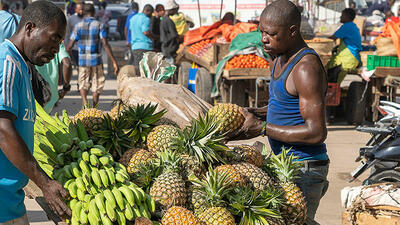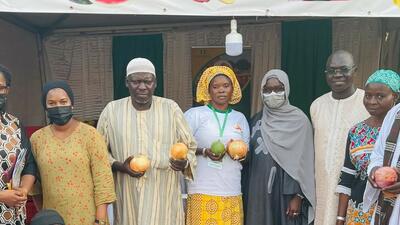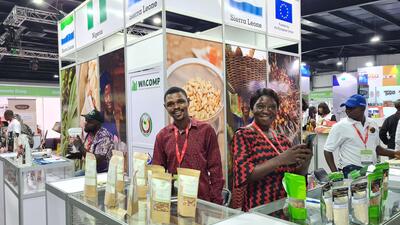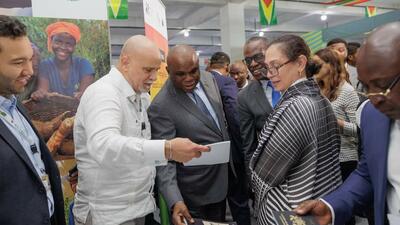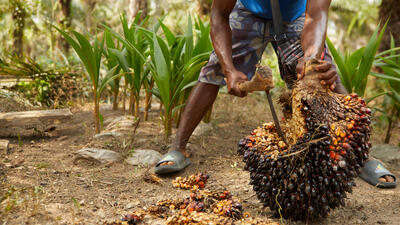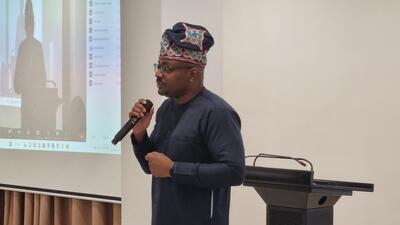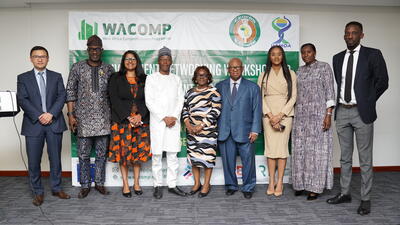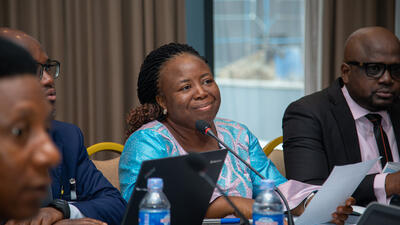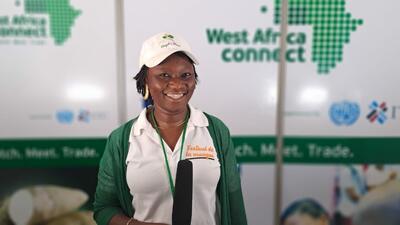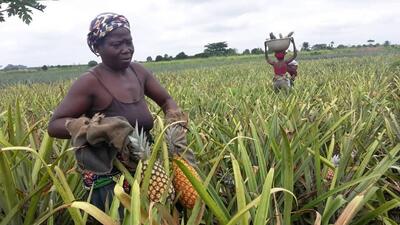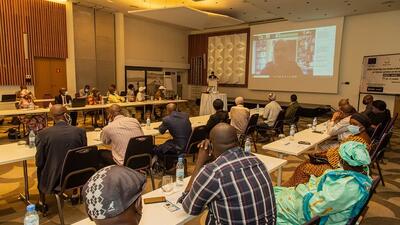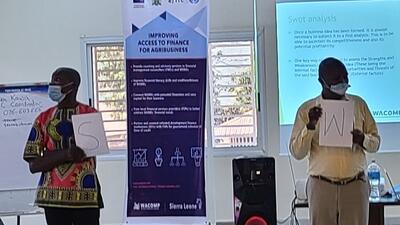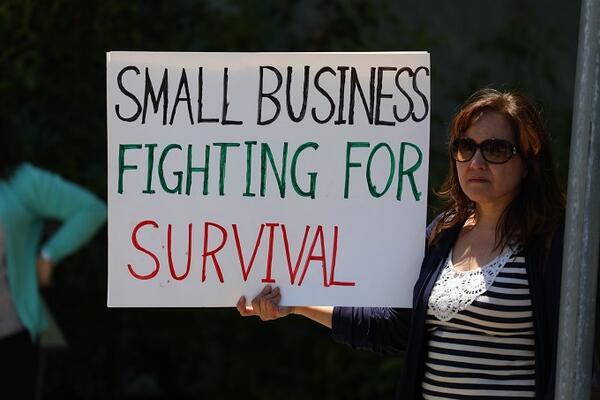
Story: Digital solutions empower business support organizations in navigating COVID-hit global markets
A multi-agency platform providing vital trade and market information is helping micro, small and medium-sized enterprises – and the institutions that support them – to weather the COVID storm
Smaller firms have been among the hardest hit by COVID-19. Demand for their goods and services plummeted when the pandemic disrupted supply chains.
In response, chambers of commerce and other business support organizations (BSOs) worldwide have been diligently working to support micro, small and medium-sized enterprises (MSMEs) to adapt their business strategies and put them on the path to recovery.
One BSO professional in Ghana, Julius Bradford Lamptey, was astonished at how quickly the landscape for firms changed as trade flows came to a standstill.
‘In the early days of the lockdown, our goal was just to assess the damage to businesses and to help make the government aware of their needs,’ said Mr. Bradford Lamptey, who is Head of Research & Advocacy of the Ghana National Chamber of Commerce & Industry (GNCCI).
‘It was an extremely challenging and unsettling time when business activity stopped, and firms began to burn through their reserves,’ he said.
A study by GNCCI, which serves more than 6,500 business members, revealed that the total estimated financial cost associated with the pandemic differs and increases with firm size.
On average, the extent of the effect on projected 2020 annual revenue was more significant for small (80%) and medium (80%) enterprises than micro (75%) and large (50%) enterprises.
Yet as the economy has gradually reopened after the peak of the pandemic, requests for help came flooding in. Businesses were starved of reassurance and information about market opportunities. They were keen to understand how to diversify their market risks and where they could turn to help spur new opportunities for growth and make up for lost time.
And because BSO staff were suddenly forced to work from home without access to all their usual resources, digital solutions became pivotal.
In early June, Mr. Bradford Lamptey and his colleagues took part in a COVID-response webinar organized by ITC’s West Africa Competitiveness Programme (WACOMP). The webinar explained the functionality of the Global Trade Helpdesk – a multi-agency platform that brings together trade and market intelligence from 11 partner agencies - and how MSMEs and BSOs can use it to help weather the storm.
‘The webinar really changed my perspective,’ he said.
Mr. Bradford Lamptey discovered he could access relevant information from across all of his favourite trade tools in a single platform. He could track changes in demand, export potential, tariffs and regulatory requirements.
He was also able to share information with his colleagues working in regional chambers to help make their work more efficient and advise firms on opportunities in key value chains. In Ghana, these include value chains for cashews, cassava, mangos, cocoa and others.
‘My prayers were answered for our business support institution, allowing us to provide evidence-based guidance to firms much faster and to share the tool with firms to help them conduct their own research in the future,’ Mr. Bradford Lamptey added.
The same need for timely and relevant information was a worry for firms on the other side of the Atlantic in Brazil. According to a recent COVID Survey with Brazilian entrepreneurs, 89% of firms had seen a fall in sales revenues, with an average fall of 69%.
Juarez Leal, Senior Advisor in the Business Directorate of APEX, Brazil’s trade promotion agency, said he was anxious for the 12 million SMEs struggling for survival in Brazil.
The recession in the local market has depressed sales. Still, many firms were reluctant to explore opportunities beyond the domestic market. They did not know where to begin their search.
‘The Global Trade Helpdesk is the first tool I have come across that makes so much critical information available in a single product-level search, and that really caters to the business sector by presenting information in an accessible way,’ Mr. Leal said.
Firms need this information to build their resilience in uncertain market conditions and take advantage of emerging opportunities.
In Brazil’s case, export flows have dropped 7% in the first half of 2020 compared to 2019, and there have been dramatic changes for the country’s trading partners. Mercosur and US markets were significantly affected by export declines of 32% and 29% compared to 2019.
To help Brazilian firms become more resilient in the future, APEX has committed to working with Global Trade Helpdesk partners to translate it into Portuguese.
Interest in the Global Trade Helpdesk has surged in response to the COVID-19-related economic disruptions.
The number of users of the platform has nearly tripled since it was rolled out in June 2020. More than 2,100 participants from diverse chambers, public institutions, and firms have taken part in dedicated webinars across Latin America, Africa, and Asia.
Customized webinars for apparel and textile sectors and cashew, cassava and shea value chains have also helped BSOs provide additional support to key industries in specific markets.
Access to reliable, timely and relevant information is more critical than ever, with different markets being impacted at different times and to different degrees, and the onslaught of temporary trade policy measures put in place by dozens of governments around the world.
‘Our new normal will be a digital one,’ Mr. Bradford Lamptey in Ghana said. ‘This year has pushed us to change the way we work and become more efficient for the firms we serve.’
With the help of tools like the Global Trade Helpdesk, BSOs are better equipped to confront the challenges of tomorrow and evolving global market conditions.
The Global Trade Helpdesk is an initiative of the International Trade Centre, the United Nations Conference on Trade and Development and the World Trade Organization with the participation of the African Development Bank, the Inter-American Development Bank, the International Chamber of Commerce, the Food and Agriculture Organization of the United Nations, the United Nations Industrial Development Organization, the World Customs Organization, the World Bank Group and the World Intellectual Property Organization.




